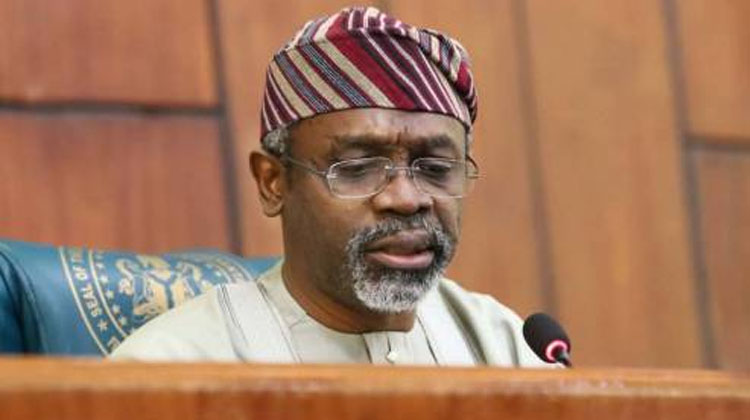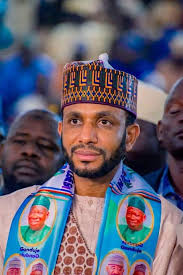Dear Honourable Speaker,
OUR CONCERNS REGARDING THE BILL BEING CONSIDERED ON COMPULSORY VOTING IN NIGERIA
The Committee for the Defence of Human Rights (CDHR) and the Centre for Anti-Corruption and Open Leadership (CACOL) hereby write to you as concerned Civil Society Organizations regarding the bill seeking to make voting compulsory for eligible citizens in Nigeria. You will recall that the bill, co-sponsored by your Honourable self (the Speaker of the House of Representatives, Tajudeen Abbas), and Labour Party lawmaker Daniel Asama Ago, sought to amend the Electoral Act to make voting mandatory for all Nigerians of voting age in national and state elections.
The bill also proposed a six-month jail term or a fine of N100,000 for eligible citizens who fail to vote. At a plenary recently, Ago, representing Bassa/Jos North, maintained that the bill aims to curb voter apathy and reduce vote-buying.
While the intention behind the bill may be to increase civic participation, we respectfully submit that the proposed legislation is both unconstitutional, illegal and impractical under Nigeria’s current legal and socio-political framework because of the following reasons:
1. Incompatibility with the 1999 Constitution (as amended):
Section 39 of the Constitution guarantees freedom of expression, which inherently includes the right to abstain from political participation, including voting. Furthermore, Section 40 provides for the freedom of association and, by implication, the right to political disassociation. Making voting compulsory, with the threat of penalties for non-compliance, amounts to coercion and infringes upon these fundamental rights.
2. Violation of Human Rights Principles:
Compulsory voting undermines the principles of freedom and choice that are central to democratic societies. Forcing individuals to vote, regardless of their convictions or circumstances, contradicts the very spirit of democracy. It also risks transforming the electoral process into a mere formality, rather than a meaningful exercise of political will.
3. Practical and Infrastructural Challenges:
Nigeria currently faces significant logistical and administrative challenges in its electoral process, including inadequate voter education, poor access to polling units, insecurity, and disenfranchisement in rural and conflict-prone areas. Making voting compulsory without addressing these systemic problems may lead to widespread disenfranchisement and legal disputes.
4. Economic and Enforcement Burden:
Implementing and enforcing a compulsory voting law would require extensive resources to monitor compliance, investigate defaults, and impose penalties. In a country already grappling with economic strain and limited institutional capacity, this would be an unwise use of public funds and manpower.
5. Potential for Abuse and Voters Apathy:
Rather than promoting active civic engagement, forced voting may increase apathy and resentment. Citizens may feel alienated or coerced, which could lead to uninformed or protest votes. Voters may even go to polling units with the intention of rubbishing the voting materials including the ballot paper, thereby causing unnecessary waste of resources, time and efforts that would be put into counting ineligible ballot papers. This undermines the integrity and quality of the electoral outcomes.
We believe that there is no coercion that the State does that can stop voter’s apathy. If those in government do not deliver good governance, people’s interest in voting will not be rekindle. A lot of people collected the Permanent Voter’s Card (PVC), to be used as official identity card that is acceptable in banks and some other institutions, not because they are interested in voting. The issue of voters’ apathy can only be addressed when there is good governance.
We believe that if the State must force people to vote, then it should be prepared to give everybody unfettered access to contest elections without monetary demands from the political parties. Those who want to contest should be given free hands to contest and all the money needed for their campaigns should be borne by the government.
If the citizens knows that they are not excluded from those who could contest election and win, they may want to vote and mobilize others to vote. But in a situation where they know that once you don’t have money, you cannot contest election and all the candidates that present themselves for the election may be those that the people don’t believe that will deliver dividends of good governance, then the reverse would be the case. As long as people have sense of belonging, they may change their mindset about participating in the periodic voting.
Moreover, we would also suggest that electoral corruption and other forms of corruption crimes should be eliminated. Stiffer consequences should be imposed on corrupt politicians like it is done in some Asian countries to deter or eliminate kleptomania in political leadership. This will enhance people’s confidence in the electoral process and encourage people to voluntarily cast ballots.
In light of the above, we urge the House of Representatives to reconsider this bill. Instead of compelling participation, efforts should focus on improving voter education, strengthening democratic institutions, and building public trust in the electoral process which will ultimately lead to more citizen’s participation in the electoral process.
If the law is eventually forced on us, it may force us and other civil society organizations to withdraw our support from the government and commence series of agitation of which dimensions cannot be predicted.
Democracy thrives not on coercion, but on the informed and voluntary participation of the people. Let us preserve and promote that ideal.
Thank you for your attention to this important matter.
Yours in service to humanity,
Debo Adeniran,
National President, CDHR
Chairman, CACOL
08037194969.
dadng@yahoo.com
cacolc@yahoo.com
www.deboadeniran.com.
Cc:
The Executive President, Federal Republic Of Nigeria.
The Senate president.





